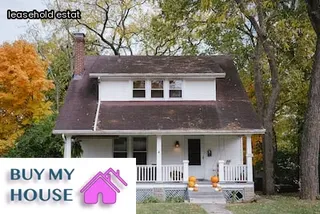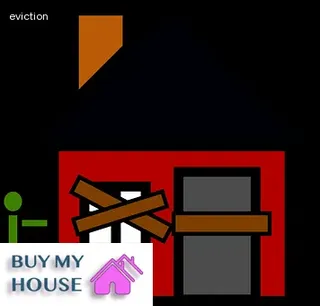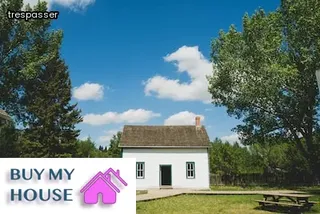Squatting and trespassing are two distinct concepts that can have a significant impact on homeowners in North Carolina. Squatting, also referred to as adverse possession, is when an individual occupies another person's property without their permission or legal right to do so.
This occupation can be for a variety of reasons, such as claiming ownership for tax purposes or using the land for commercial gain by renting it out. Trespassing is different from squatting; it occurs when someone unlawfully enters property that they do not own or rent.
Generally, this can be done with the intent of causing damage or disrupting normal activities on the property. In North Carolina, squatters and trespassers are both subject to criminal prosecution if they don't leave the property after being asked to do so by law enforcement.
Homeowners should take steps to understand their rights related to both squatters and trespassers in order to protect their real estate investments and avoid costly legal disputes.

Holdover tenancy is a legal term that describes a situation in which a tenant remains in the property after the lease has ended, either with or without the landlord’s consent. In North Carolina, squatting laws are complicated and it can be difficult to understand how holdover tenancy relates to squatting.
The distinction between these two concepts lies in their respective definitions: while squatting involves occupying another person’s property without permission, holdover tenancy occurs when a tenant continues to reside on the property after their lease has expired but they have not been asked to leave by the landlord. When this occurs, the tenant is still obligated to pay rent, however it may be at an increased rate due to their overstaying of the original lease agreement.
Understanding holdover tenancy is important for homeowners in North Carolina as it will help them identify whether or not a squatter is legally occupying their property and what rights they have.
Squatting in North Carolina is a complicated legal issue that requires an understanding of both state and federal laws. Squatters are people who occupy a property without the permission of the owner or tenant, and in North Carolina, squatters may be granted certain rights to the property if they meet certain criteria.
It is important for homeowners to understand these implications before taking any action against a squatter. In North Carolina, squatters can gain legal possession of a property if they have paid rent or made improvements to the property while living there; this is known as adverse possession.
It is also possible for squatters to gain legal ownership through the doctrine of estoppel, which states that if a homeowner makes false statements which lead the squatter to believe they have permission to occupy the property, then that squatter may receive ownership over time. Homeowners should also be aware of their rights under NC law, such as their right to take any necessary steps to remove a squatter after giving written notice and waiting at least three days.
Understanding these legal implications can help homeowners protect themselves from potential harm caused by squatting on their property.

In North Carolina, the color of title is an important factor in determining whether a squatter has legal rights to a property. If a squatter can prove they have held exclusive possession of the property for 15 or more years, they can establish “color of title” and strengthen their claim as the rightful owner.
This means that if a squatter meets this threshold and has paid taxes on the property for at least 15 consecutive years, it is possible for them to gain legal ownership of their home. While North Carolina laws do not explicitly require proof of payment of taxes to establish color of title, tax receipts are often seen as strong evidence that a squatter has possessed and used the land exclusively for 15 years or more.
In addition, deeds, wills and other written documents may also be used as evidence to support color of title claims. The bottom line is that under certain circumstances, North Carolina squatters may be able to use color of title to strengthen their claim to a property.
In North Carolina, squatters are not required to pay property taxes. Generally, a squatter is defined as an individual who occupies a property without the owner’s permission or legal right to do so.
Even though they are not lawfully able to occupy the space, squatters may have certain rights under North Carolina law. It is important for homeowners in the state to understand what those rights are and how they apply in terms of property taxes.
Although squatters may not be liable for paying taxes on a home, they may still be subject to eviction proceedings initiated by the homeowner. Additionally, it is also possible that they could receive certain protections against eviction under local laws.
Therefore, it is crucial for homeowners in North Carolina to become familiar with both their own rights and the potential rights of any potential squatters on their property.

Removing squatters from a property in North Carolina is usually done through legal means, and can be a difficult process for homeowners to navigate. The first step is to understand the squatter's rights in the state.
North Carolina law recognizes the right of people to remain on or occupy property that they do not own or rent if they have been living there openly and continuously for 15 years or more. Therefore, it is important to identify the squatter and their length of occupation before any further steps are taken.
A formal notice must be given to them stating that they will have 30 days to vacate the premises; this notice should be served by a certified mail or a sheriff. If after 30 days there is no response, then an unlawful detainer action can be filed with the court.
This action will allow for an eviction order which can be enforced by law enforcement officers if necessary. Additionally, homeowners may also try other methods such as negotiations and mediation in order to settle matters amicably.
Understanding North Carolina laws regarding squatters' rights is essential for homeowners who find themselves in these situations and seeking to remove them from their property.
When it comes to understanding North Carolina squatter's rights for homeowners, there are several methods that can be used to protect oneself from potential squatters. Landowners should first research the legal framework of North Carolina state laws, which may include statutes related to unlawful entry and other residential property protection regulations.
Additionally, it is important to take proactive steps to secure access points on the land or property such as locks, fences, or closed gates. Homeowners should also post signs that clearly indicate any trespassing is prohibited and unwanted.
Finally, they should consider investing in surveillance cameras in order to monitor any suspicious activity on their property. By taking these steps and familiarizing themselves with state laws, landowners can better protect themselves from possible squatters and ensure their home remains safe.

Under North Carolina law, a trespasser is someone who enters or remains on another person's property without permission from the owner. In most cases, a trespasser does not have any legal rights to the property and can be removed.
Squatters are unique in that they can become trespassers when they enter a property without permission, but may then be protected under North Carolina law if they stay for an extended period of time. Generally, a squatter must occupy the property for at least 10 years before being considered a tenant in some capacity and thus having rights to the property.
It is important for homeowners to understand that while squatters may eventually gain certain rights after staying on their property for an extended period of time, they are still technically considered trespassers until that point.
Adverse possession, as defined by North Carolina law, is a legal principle that allows individuals to gain ownership of property they have been occupying for a certain period of time. To establish adverse possession in North Carolina, the person claiming the land must have occupied it for at least twenty years and their occupation must be “open, notorious, hostile and continuous”.
Their occupation must not be with the permission of the true owner and they must pay taxes on the property during this time. If those requirements are satisfied, then the claimant can apply to the court for title to the property.
In addition to these requirements, there are also special rules for properties located within city limits or involving public roads. It is important for homeowners in North Carolina to understand how adverse possession works so that they can protect their rights as land owners.

In North Carolina, color of title is not necessary to establish a successful adverse possession claim by a squatter. Adverse possession is a legal concept that allows someone who has been occupying another person’s property for at least 20 years to acquire the title to the property.
While color of title is not required for an adverse possession claim in North Carolina, it does have an impact on the outcome of such claims. Color of title refers to a document or deed that grants ownership rights to a person over a particular piece of land.
If there is no such document of title, then the squatter must meet certain criteria, such as open and notorious possession and exclusivity, in order to make a valid claim on the property. Additionally, squatters must provide evidence that they have been living on the property continuously for at least 20 years and paying all applicable taxes during this time.
Without color of title, additional proof may be necessary in order to prove that the squatter has met these requirements and is eligible for successful adverse possession in North Carolina.
In North Carolina, understanding the rights of squatters is important for homeowners to avoid property disputes. Color of title is a legal concept that can be used as evidence of adverse possession claims in NC.
This term describes when an individual has a document, such as a deed, that purports to convey title to land but the document is void due to some defect in its execution or delivery. Furthermore, the doctrine allows for someone who does not have any legal claim on property to gain title if they possess and make improvements or pay taxes on the land for twenty years.
When attempting to prove adverse possession in North Carolina, it is important for homeowners to understand how color of title works and how it could be used by squatters as evidence of their ownership over disputed property.

North Carolina squatters' rights are determined, in part, by the requirement for payment of property taxes. In order to have legal standing and be protected under North Carolina law, a squatter must pay their fair share of property taxes on the home they occupy.
Failure to do so may result in eviction and other legal ramifications. Furthermore, a squatter who fails to pay their property taxes has no legal right to challenge an eviction order from the homeowner or landlord.
To determine whether or not an individual is legally considered a squatter, it is important to examine how much time they have been living on the premises and whether or not they have paid property taxes. North Carolina law states that any person residing in a dwelling for seven consecutive years is deemed a squatter and therefore entitled to certain protections under the law, including protection from eviction.
Additionally, squatters may seek damages if they are unlawfully evicted before having had the chance to prove their occupancy for at least seven years. It is important for homeowners and landlords seeking to evict an individual claiming squatter's rights to ensure that all legal requirements regarding payment of property taxes are met before taking action.
In North Carolina, squatters rights, also known as adverse possession, is a legal doctrine that allows someone to acquire the title of a property they occupy without the consent of the current owner. Squatters rights are based on the idea that if someone occupies a property for an extended period of time and meets certain qualifications then they could be considered the rightful owner.
In order to successfully claim squatter's rights in North Carolina, the squatter must demonstrate that they have maintained exclusive and continuous possession of the land or property for at least 20 years, paid all applicable taxes on it during that time, and not been challenged by another party. If these conditions are met, then the squatter may be able to acquire ownership of the land or property.
Homeowners should be aware of their rights when dealing with potential squatters, as non-payment of rent does not necessarily lead to eviction in North Carolina. Instead, homeowners may have to take additional steps such as filing a lawsuit in order to regain possession of their property.

In North Carolina, adverse possession is the legal concept in which a squatter obtains title to a piece of land through open, notorious, exclusive, hostile, and continuous possession for a period of at least 20 years. Adverse possession law in North Carolina requires that the squatter pay all property taxes on the land for that period and use the property as if it belonged to them.
It also requires that they must never abandon possession of the property during that time. If these conditions are met, then the squatter may be able to obtain title to the land through adverse possession law in North Carolina.
To prevent squatters from taking advantage of this process, homeowners should be aware of their rights under North Carolina's adverse possession laws and take steps to protect their property if necessary.
In North Carolina, the shortest amount of time a squatter must be in possession of a property to attain legally protected squatters rights is seven years. This means that if a squatter has been occupying and taking care of a home or other property for seven consecutive years, they may have the right to remain on the premises as an owner with legal title to the land.
The law also states that any person who has lived in a dwelling for more than three months has acquired certain common law protections that are provided under North Carolina's statute on squatters' rights. The length of residence does not matter; rather, it is how long the person has been living in and taking care of the property which determines whether or not they can assert ownership rights.
Under these laws, if a squatter has been living at a residence for seven years or more, they may be able to establish their ownership rights even without formal documentation like deed or title. It is important to note however, that different rules apply when dealing with commercial properties, so it is always best to consult an attorney before attempting to acquire squatters' rights in North Carolina.
When it comes to understanding North Carolina squatter's rights for homeowners, the answer to 'are squatter's rights OK?' is not always a simple yes or no. North Carolina law offers some protections and limitations on squatters’ rights, particularly when it comes to real estate property.
Generally speaking, if a homeowner has been away from their property for an extended period of time, squatters may be able to claim adverse possession of that land. In these cases, a squatter must have been living on the property in question for at least 15 years before they can legally claim ownership.
Additionally, during at least 7 of those 15 years they must have lived on the property openly and continuously while paying taxes and making improvements. If these conditions are met and the squatter successfully claims ownership of the land, then the homeowner is usually not entitled to any compensation as part of this process.
It should also be noted that squatters do not necessarily have a right to gain access or use services connected to the property. Ultimately, whether squatter’s rights are OK depends on individual circumstances and it is always advisable for homeowners facing this situation to seek legal counsel in order to understand their specific rights and available options.